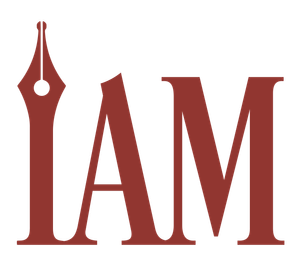Why Authors in Every Genre Need to Consider Their Characters’ Names Carefully
A character’s name can often make or break a book. How well would Lord of the Rings have gone over if it had followed Legolas, Gandalf, Aragorn, Gimli, Boromir, and their hobbit companions Bob and Doug McHobbit? Tolkien’s editor might have had opinions. One imagines Kiki O’Hara would have also been quite a different character to Rhett Butler in Gone with the Wind.
It isn’t just the accurate fit of a character’s name in the genre that matters. Choosing a name for a character is a subtle art. It is a choice that can convey important details about a character’s personality, background, and culture and may even alter the course of the character’s arc—if that’s something the writer chooses.
In Latin, “lector” translates to “one who reads.” Given Dr. Hannibal Lector’s penchant for studying his adversaries and gleaning their intentions, his name offers an entirely new, subtle menace to the character. Stranger in a Strange Land features a character named Jubal Harshaw, who becomes the de facto patriarch of the novel and its characters—almost a given, considering the name Jubal already refers to someone who is “Father of All.” More recently, George R. R. Martin’s Game of Thrones, both the novel and the show, feature the character Bran Stark, who is eventually referred to as “the three-eyed raven”—though with Bran being a Celtic word that means “raven,” the character’s fate was foreshadowed from the moment he was introduced.
Names can also have long-lasting, unintended effects. Donald Westlake, writing as Richard Stark, wrote a standalone crime novel starring a thief known only as Parker. This novel became a sixteen-book series, which Westlake lamented for a single reason. “It got tiresome after a while, trying to find some other way to say ‘Parker parked the car.’” Imagine the sheer exhaustion Tolkien must have felt after spelling out a dozen Elvish names by hand during his writing. Depending on the desired effect, a writer may choose a theme—such as Biblical or Greek names—to add depth to their characters. Plenty of resources exist to help writers find names in these categories and explore their underlying meanings. Behind the Name (http://behindthename.com) is an extensive database of names and their significance, with masculine, feminine, or cultural parameters that allow users to find options that may be suitable. For names that carry metaphorical significance, Nameberry (www.nameberry.com) is another helpful database of names and their meanings, also searchable by several parameters.
Whether we choose them for sentimental reasons, arcane reasons such as a hidden meaning or a veiled clue, or simply because we like the sound, we must consider the ramifications of the names we choose for our creations, no matter the genre or intent. The attention to detail can also be especially important for characters whose culture or ethnicity differs from your own—controversy surrounding the Harry Potter series’ character Cho Chang, whose name is a mashup of two surnames from two different cultures, offers a perfect example as to why. Do our characters’ names have to have subtext? Of course not. If a name fits your genre and you like the sound, by all means, put it to paper. But a carefully chosen name can give authors another method for adding an extra layer of depth to their worlds.
Just keep in mind that for all the subtle references or hidden meanings you might convey to your reader from your character’s introduction, it’s also possible to give away too much with a poorly chosen name. George Lucas, while never known for his subtlety, named his primary villain after the Dutch word for “father,” spoiling one of his biggest plot twists for the series in the process—at least for those who spoke the language. Luckily, even a bad example can become an important lesson for a cautious writer: however you choose them, your characters’ names make a difference.












